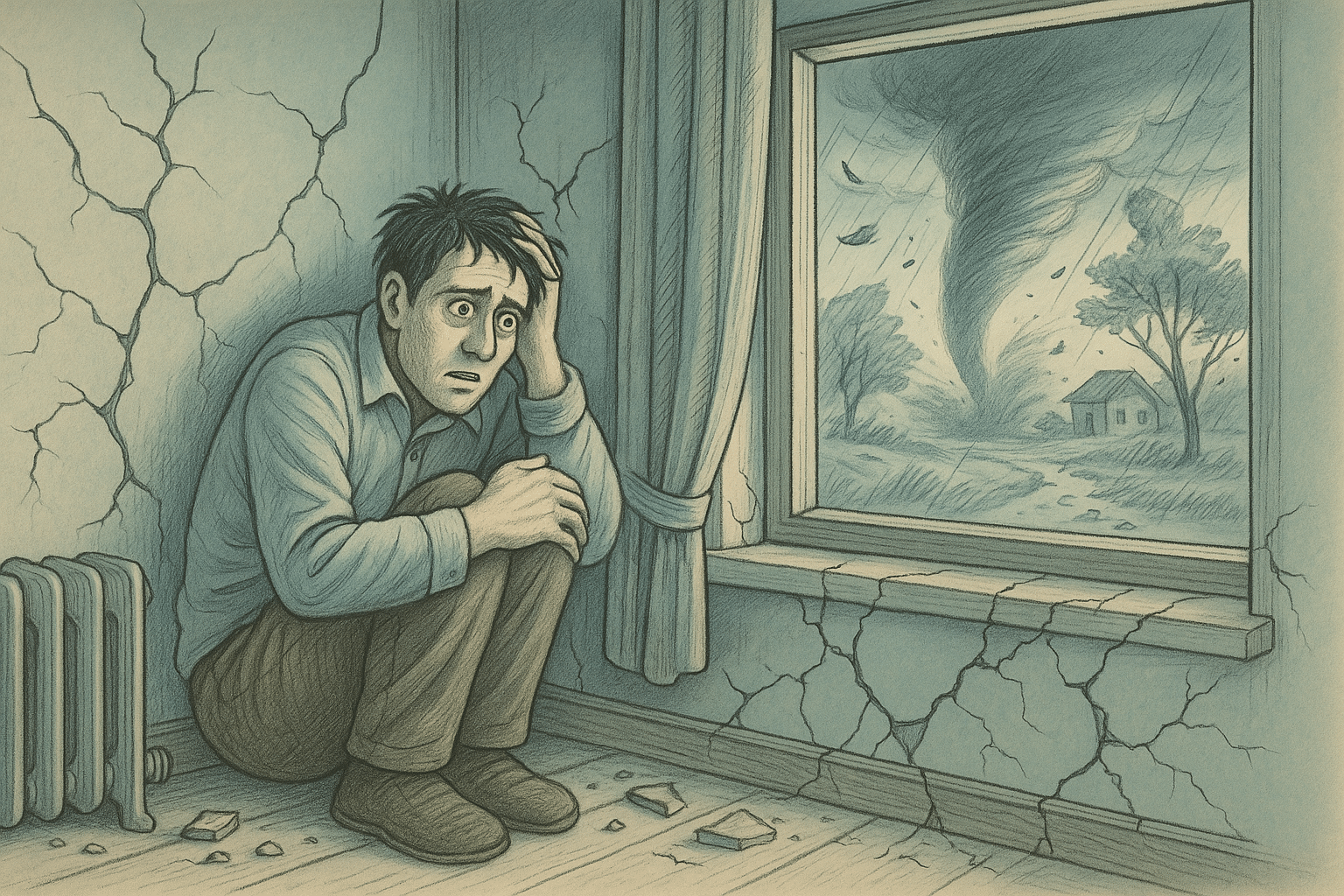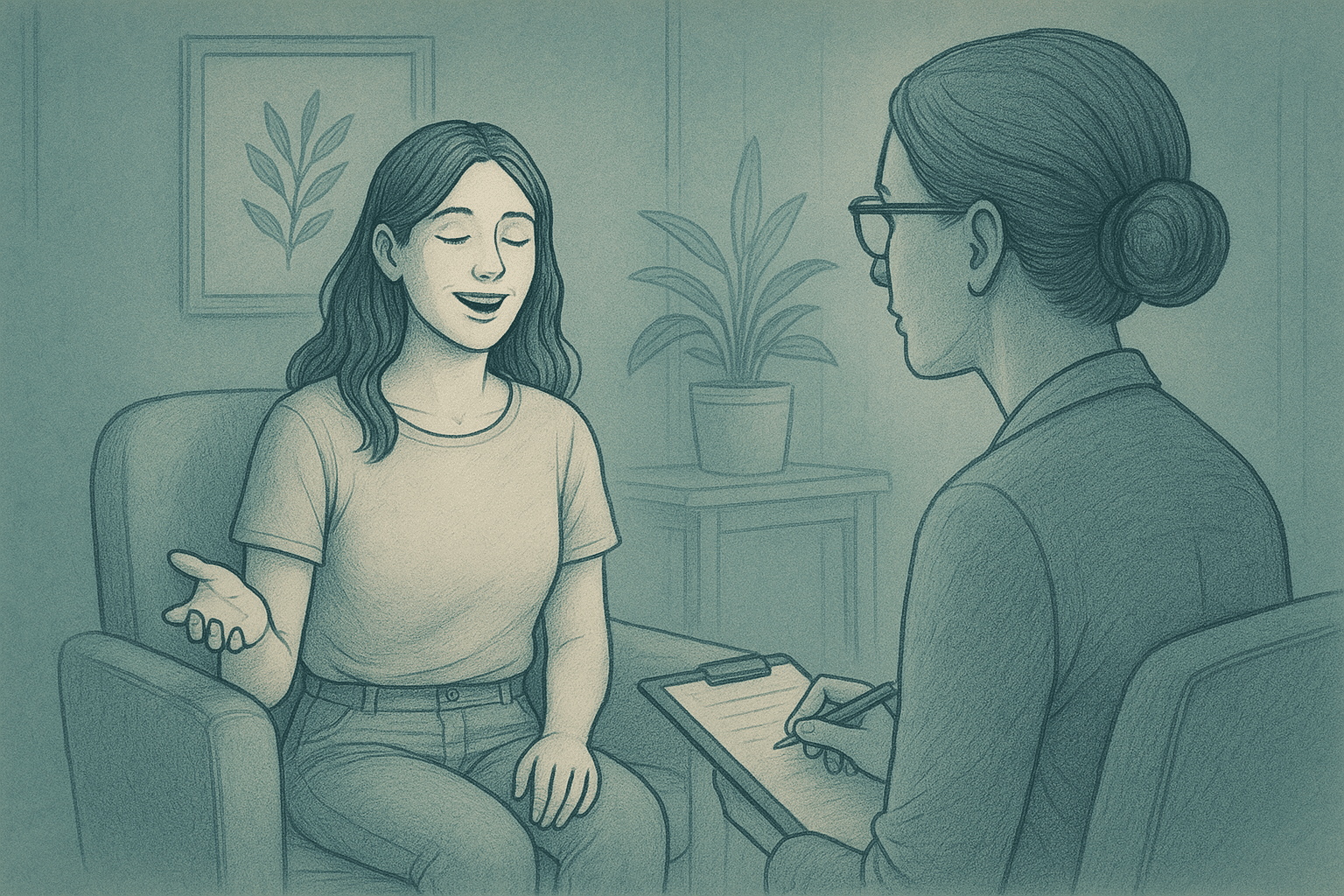Key Takeaways
- Trauma can have long-lasting effects on mental health, increasing the risk of developing dementia.
- Post-traumatic stress disorder (PTSD) is a significant risk factor for dementia, as the chronic stress and anxiety associated with PTSD can contribute to cognitive decline over time.
- The stress hormone cortisol plays a crucial role in this connection, as prolonged exposure to high cortisol levels can damage the hippocampus, a brain region essential for memory formation
- Early intervention through trauma-focused therapy approaches can help reduce the risk of dementia by addressing trauma before it causes significant brain changes.
- A Mission For Michael (AMFM) offers comprehensive trauma treatment programs with specialized trauma expertise and personalized therapeutic strategies, including stabilization techniques, EMDR, somatic approaches, and group therapy, all designed to help trauma survivors heal and potentially reduce their risk of future cognitive decline.
Impact of Trauma on Mental Health
When we talk about trauma, we’re referring to experiences that are deeply distressing or disturbing. These experiences can vary widely, from witnessing a natural disaster to enduring abuse or violence. Trauma can manifest differently for everyone, but the effects often linger long after the initial event.
For example, a person who has survived a natural disaster may experience ongoing anxiety and fear, while someone who has endured abuse might struggle with trust and forming healthy relationships. These psychological effects can compound over time, increasing the risk of developing conditions like PTSD.
Psychological and Physical Effects of Trauma
Trauma can lead to both psychological and physical effects. Psychologically, individuals may experience anxiety, depression, or PTSD. Physically, the body’s stress response can be activated, leading to increased levels of cortisol, a hormone associated with stress.
Trauma doesn’t just affect the mind; it can also have tangible effects on the body. Chronic stress resulting from trauma can weaken the immune system, increase blood pressure, and lead to sleep disturbances. These physical responses further highlight the need for comprehensive support for trauma survivors.
Trauma’s Long-Term Impact

Long-term exposure to trauma can have profound effects on brain function.
The brain’s structure and chemistry can change due to trauma, potentially leading to cognitive decline and an increased risk of dementia. This is why addressing trauma early is so crucial; the sooner we intervene, the better the chances of minimizing its long-term impact.
Understanding the mechanisms behind these changes can empower you to make targeted interventions that address the root causes of trauma-related cognitive decline. By doing so, you can lead a healthier, more fulfilling life.
Founded in 2010, A Mission For Michael (AMFM) offers specialized mental health care across California, Minnesota, and Virginia. Our accredited facilities provide residential and outpatient programs, utilizing evidence-based therapies such as CBT, DBT, and EMDR.
Our dedicated team of licensed professionals ensures every client receives the best care possible, supported by accreditation from The Joint Commission. We are committed to safety and personalized treatment plans.
Trauma and Dementia Risk
Scientific Studies Showing a Link
Recent studies have established a strong link between PTSD and dementia. One meta-analysis found that individuals with PTSD had a significantly higher risk of developing dementia compared to those without PTSD. This suggests that the chronic stress and anxiety associated with PTSD can contribute to cognitive decline.
Understanding Cortisol’s Role
Cortisol, often referred to as the “stress hormone,” plays a significant role in the body’s response to stress. In the short term, cortisol helps the body manage stress. However, chronic exposure to high levels of cortisol can damage the brain, particularly the hippocampus.
Therefore, managing stress effectively aids in reducing the risk of cognitive decline. Techniques such as mindfulness, meditation, and therapy can help individuals manage their stress levels and protect their brain health.
Hippocampus and Memory Loss
The hippocampus is a critical region of the brain involved in memory formation and retrieval.
Trauma and chronic stress can lead to a reduction in the volume of the hippocampus, which can impair memory and cognitive function.
Besides that, the hippocampus is highly sensitive to cortisol. Prolonged exposure to high cortisol levels can lead to hippocampal shrinkage, which is often observed in individuals with PTSD. This shrinkage can contribute to the development of dementia and other cognitive disorders.
Strategies for Reducing Dementia Risk
Early Mental Health Interventions

Early intervention is crucial in managing the effects of trauma.
Providing individuals with access to mental health resources, such as therapy and counseling, can help them process their experiences and develop healthier coping mechanisms.
For example, trauma-focused Cognitive Behavioral Therapy (CBT) is effective in reducing PTSD symptoms and improving overall mental health. By addressing trauma early, we can help individuals build resilience and reduce the risk of dementia.
Developing Healthier Coping Mechanisms
Encouraging individuals to develop healthier coping mechanisms is another vital strategy. This can include mindfulness practices, which have been shown to reduce stress and improve mental well-being.
Additionally, promoting physical activity and a balanced diet can support overall brain health. Regular exercise and a diet rich in fruits, vegetables, and omega-3 fatty acids can help protect against cognitive decline and support mental resilience.
The Importance of Ongoing Support
Ongoing support is essential for individuals who have experienced trauma. This can include regular check-ins with mental health professionals, support groups, and community resources.
Building a strong support network can provide individuals with the encouragement and resources they need to manage their mental health effectively. By fostering a sense of community and connection, we can help individuals manage the challenges of trauma and reduce the risk of dementia.
Protect Your Future Brain Health with AMFM’s Trauma Treatment
The connection between trauma and dementia represents a critical but often overlooked aspect of long-term brain health. At A Mission For Michael (AMFM), we understand that addressing trauma isn’t just healing your past, it’s protecting your cognitive future. Our specialized trauma treatment programs are designed to interrupt the physiological processes that can lead from trauma to dementia, including chronic stress responses, hippocampal damage, and ongoing inflammation.

With locations in California, Minnesota, and Virginia, our centers provide comprehensive trauma care with exceptional staff-to-patient ratios and clinicians specifically trained in trauma-brain connections.
We don’t just treat symptoms; we address the neurobiological impacts of trauma through evidence-based approaches like EMDR, somatic therapies, and comprehensive mental health support.
Early intervention is ideal, but it’s never too late to begin healing. If you’ve recently experienced trauma or have been managing its effects for years, our personalized treatment plans can help reduce your risk factors for cognitive decline while improving your quality of life today.
Contact us for a confidential assessment to take the first step toward protecting both your present and future brain health.
Frequently Asked Questions (FAQ)
What are the Common Signs of Dementia?
Common signs of dementia include memory loss, difficulty concentrating, confusion about time and place, and changes in mood or behavior. If you or someone you know experiences these symptoms, seek medical advice for proper evaluation and support.
Can Therapy Help Prevent Dementia?
Therapy, particularly trauma-focused approaches like Cognitive Behavioral Therapy, can be effective in managing trauma-related stress and reducing the risk of dementia. By addressing the root causes of stress and anxiety, therapy can support healthier brain function and improve overall mental health.
Are Certain Age Groups More at Risk?
While trauma can affect individuals of all ages, older adults may be more susceptible to the cognitive effects of trauma due to age-related changes in brain function. However, early intervention and support can help mitigate these effects and reduce the risk of dementia.
How can I tell if my trauma symptoms might be affecting my cognitive health?
Warning signs that trauma may be impacting your cognitive health include persistent memory problems, difficulty concentrating, feeling mentally foggy, problems with executive function (planning, organizing, completing tasks), increased confusion, or noticeable changes in your thinking abilities. You might also experience heightened stress responses, sleep disturbances, or mood changes that indirectly affect cognitive function. If you’re experiencing these symptoms, especially with a history of trauma, we recommend scheduling an assessment with AMFM to evaluate your specific situation and take a look at appropriate treatment options.












